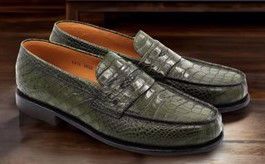Shoes have long been more than just practical necessities; they became symbols of craftsmanship, culture, and status.
From ancient leather sandals to the refined, stitched loafers of today, handmade footwear has always represented the pinnacle of quality as well as artisanal artistry.
Unlike mass-produced alternatives, handmade shoes stand out for their durability and comfort, mostly thanks to their natural materials and attention to detail, offering wearers a product that ages well and can be renewed and, if needed, repaired.
Portugal has emerged as one of the global leaders in the tradition of artisanal shoemaking. Combining centuries-old techniques with modern technology, Portugal’s footwear industry champions a model of slow, sustainable shoemaking.
At the forefront of this transformation is the Association of Portuguese Footwear, Components, and Leather Goods (APICCAPS), representing the footwear cluster, which includes three key industries: footwear, footwear components, and leather goods, and some 40,000 workers.
Paulo Gonçalves, APICCAPS spokesperson and editor-in-chief of Portuguese Soul magazine, describes Portugal’s unique position in the global market: “Portugal’s strength lies in its ability to blend small-scale craftsmanship with advanced technology.”
From ancient leather sandals to the refined, stitched loafers of today, handmade footwear has always represented the pinnacle of quality as well as artisanal artistry.
Unlike mass-produced alternatives, handmade shoes stand out for their durability and comfort, mostly thanks to their natural materials and attention to detail, offering wearers a product that ages well and can be renewed and, if needed, repaired.
Portugal has emerged as one of the global leaders in the tradition of artisanal shoemaking. Combining centuries-old techniques with modern technology, Portugal’s footwear industry champions a model of slow, sustainable shoemaking.
At the forefront of this transformation is the Association of Portuguese Footwear, Components, and Leather Goods (APICCAPS), representing the footwear cluster, which includes three key industries: footwear, footwear components, and leather goods, and some 40,000 workers.
Paulo Gonçalves, APICCAPS spokesperson and editor-in-chief of Portuguese Soul magazine, describes Portugal’s unique position in the global market: “Portugal’s strength lies in its ability to blend small-scale craftsmanship with advanced technology.”




